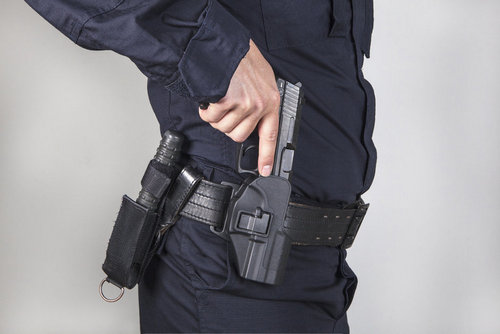It's a perverse question, but what's an acceptable number of unarmed people that the police may accidentally shoot every year?
Of course, many people's knee-jerk answer will be, "Zero!"
If you answered that way, it's time to take a deep breath and relax.
We're going to embark on a cold-hearted exercise that requires rationality, logic, and a heavy dose of realism. The implications are profound and important, so please bear with me.
After reading this long article, you're welcome to write a constructive comment at the bottom. Include what you think is a reasonable number of annual unarmed deaths and why. I will update this article as I get thoughtful and intelligent feedback.
Listen to this article
This is an 8,600-word article I wrote in 2020, during the George Floyd protests. Although there are some useful graphs and videos, some people might prefer listening to the article. That's why I included it on my WanderLearn podcast.
The Black Lives Matter Thesis
A central argument in the Black Lives Matter movement is that (white) cops are disproportionately killing Black men, especially unarmed Black men. It's Exhibit A in a long list of exhibits that prove systemic, structural, and institutional racism in America's police.
This argument has been repeated so many times that it has become an axiom. Thus, questioning the Black Lives Matter thesis is tantamount to questioning whether our planet revolves around the sun.
We won't question it. Instead, we will seek to quantify it.
Metrics: Quantifying success and failure
Metrics allow us to objectively measure the size of a problem. Metrics help us measure our progress.
Metrics also help us answer crucial questions: When can we declare victory? When will we know that we've solved this crisis?
In other words, when can we put down our signs, stop protesting, hug, give high-fives, and scream, "Mission accomplished!"?
Declaring victory ought to be based on facts and evidence, not a group's feelings or one man's opinion.
Therefore, we must set reasonable benchmarks.
We must quantify where we want to be. What does a fair and just world look like, numbers-wise?
Assuming the current number of police killings of Blacks is disproportionately high, then what number would be disproportionately low?
And what number would be tragic, but understandable?
To understand what I mean, consider other tragic numbers. Every year, hundreds of babies die at daycare centers, thousands die in traffic accidents, and millions die of preventable diseases.
Since society is not vigorously protesting all these deaths, one could conclude that these deaths, while sad, are understandable. Our society deems that all those preventable deaths are tragic but tolerable.
Therefore, this article aims to help you calculate 3 numbers regarding the number of US police killings of unarmed victims:
- A shockingly high number that warrants protest.
- An expected number that we can live with and accept begrudgingly.
- A remarkably low number that's almost worth celebrating.
Great. Now let's analyze the data.
USA police kill way more people per capita than any other rich nation
In a list of 62 random countries, the USA ranked slightly below the median in the per-capita police caused fatalities.
This is embarrassing. High-income countries outperform the USA handily. It's humiliating that the Democratic Republic of Congo beats the USA.
Why isn't the USA in the top 10? Why isn't it clumped next to its rich allies instead of several poor and dysfunctional nations?
Doesn't this prove the US police are excessively violent?
Before we jump to that conclusion, we must consider two critical facts.
1. America's gun-filled environment
The USA is the only country that has more firearms than people. Indeed, it has 20% more guns than people.
We have twice as many guns per capita as the next country on the list: Yemen.
The USA has four times more guns per capita than the next two major countries on the list: Serbia & Montenegro.
We have approximately 10 times more firearms per capita than Somalia, Russia, Chile, Albania, as well as the homicide-happy Guatemala and El Salvador.
We have approximately 100 times more firearms per capita than the Democratic Republic of Congo, Guinea-Bissau, Mali, Palestine, Tunisia, and Chad.
And we have nearly 1,000 times more firearms per capita than South Korea.
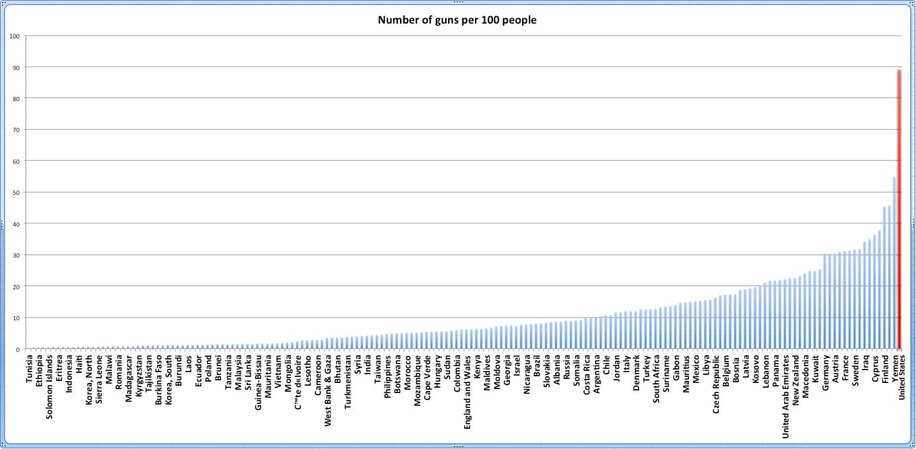
Knowing that, imagine you're a police officer, patrolling a country that is overflowing with firearms. Ask yourself:
- Would you be more nervous and quicker to reach for your gun than a cop in the Netherlands?
- Do you think it's statistically probable that police killings in the USA would be comparable to those in South Korea?
- Would you expect and predict that if Country A has 100 times more firearms per capita than Country B, they would both have the same level of police shootings?
- Should we be shocked that the US police kill far more people per capita than Sweden?
2. The USA is unusually murderous for a high-income country
Not only does the USA have far more guns per capita than anyone else, but it's also a remarkably murderous country when compared to other high-income countries.
When you examine the intentional per capita homicide rate of 230 countries/territories, the USA is just below the global median, which lines up with where it falls in the police shootings rate.
Meanwhile, the homicide rate of other high-income countries is also much lower than in the USA.
In other words, the USA's ranking on the global homicide scale is roughly the same as our ranking of police shootings: slightly below the median. Meanwhile, high-income countries have far better rankings on both metrics. You plot the two stats together, and you get this:

Should we be surprised that our law enforcement officers end up killing criminals and suspects in their effort to stop the carnage?
Given all the firearms, should we be surprised that American cops are more likely to encounter an armed and dangerous suspect than a Japanese cop?
Watch this short video. I've watched it 10 times, and I still can't believe how this female police officer didn't get killed.
After watching that video, you can get a sense that an American cop must make life-or-death decisions in milliseconds. Do you think you could have done what this female cop did? I sure couldn't.
Imagine you're in a tense situation, perhaps responding to a 911 call. You have a suspect a few meters away. It's night and hard to see. The suspect reaches behind his back. What do you do?
Wait for him to shoot you?
In theory, yes. Officers are trained not to fire on someone unless there is evidence that the officer's life is threatened.
However, in the heat of the moment, humans may forget their training. Their instinctual desire for self-preservation may override their training.
Have you ever been in an extremely fast-paced and stressful situation where you, in retrospect, made a lousy decision?
If not, do you know anyone who has made a poor decision when under stress? Or at least can you imagine that some people would, in a split second, make the wrong call?
Some panicked people involuntarily freeze or faint, which is often a terrible idea in a bad situation. We can't always control ourselves.
When 4 men in South Africa assaulted my friend, his fight-or-flight brain told him to fight. In retrospect, he says, it was an extremely stupid thing to do. He miraculously scared them away.
A pair of Cameroonian thugs nearly strangled me to death because I wasn't giving them my wallet and phone. My instinctual reaction was to fight. While I was being strangled for 30 seconds, I couldn't say, "I can't breathe." I thought I might die, but my instincts told me to resist. I was foolish, even though I "won" that battle and kept my phone (my wallet only had $10, so I let it go).
Which profession kills more people accidentally: cops or physicians?
Although it's been declining over the decades, for the last five years, US cops kill about 1,000 people per year.
According to a recent study by Johns Hopkins, more than 250,000 people in the United States die every year because of medical mistakes, making it the third leading cause of death after heart disease and cancer.
Given that Blacks are 13% of the population, that means physicians kill 32,500 Blacks every year.
Since Blacks are generally poorer than the average American, they disproportionately get physicians who are cheaper, less competent, and more error-prone than average. For the same reason, Blacks probably also get inferior medical equipment and technology. Therefore, perhaps 26% of the 250,000 physician-caused deaths are Black. That would mean that 65,000 Blacks die at the sloppy and careless hands of a physician.
Those Blacks entrusted their doctors to protect and save their lives in a similar way that we all trust our police to protect and save our lives.
Society doesn't revolt when we hear that physicians kill 65,000 Blacks every year. Indeed, few even know that statistic! Nobody says that there's "systemic racism" among physicians. Nobody is burning down clinics.
When a physician enters an operating room, it's unlikely that he is planning to kill his patient. It is also doubtful that when a cop pulls a man over, he plans to kill him. It's a bad analogy because patients enter operating rooms naked, sedated, and unarmed. Police often deal with hostile, belligerent, and armed suspects.
Metrics matter. We ought to celebrate if physicians "only" accidentally kill 50,000 people in a year, because that would be an amazingly good year on a relative scale, since they consistently kill 250,000 without society flooding the streets.
"But physicians aren't trying to kill Blacks!" you scream. "Those are mistakes! Malpractice! Accidents! When the police kill, it's MURDER!"
Calm down. Let's analyze this morbid topic.
The psychopaths among us
Neil deGrasse Tyson told Coleman Hughes that it's possible to screen police applicants so thoroughly that we can eliminate all the bad apples. Hughes disagreed. Here's why Hughes is unfortunately correct.
According to psychologists, one percent of the population is psychopathic. A psychopath isn't what you probably think he is. Although 25% of male inmates are psychopaths, psychopaths are rarely violent. You probably know a few psychopaths. There's a 1% chance that you are one.
There are 1 million physicians in the USA. That suggests about 10,000 physicians are psychopaths. A few are diabolical. Here are just a few of the many doctors who were caught and convicted:
- Dr. Death was accused of killing or maiming 33 patients and was condemned to life imprisonment.
- The Angel of Death killed about 250 patients, mostly elderly women.
- Jayant Patel was an American surgeon who was convicted of three counts of manslaughter and one case of grievous bodily harm and sentenced to seven years of imprisonment (later overturned).
- Michael Swango was a physician who admitted to killing 4 of his patients, but some believe he killed as many as 60 patients. He's serving 4 consecutive life sentences.
- Dr. John Bodkin Adams had more than 160 of his patients die of suspicious causes—132 of whom had put Dr. Adams in their wills before passing away. Like a police officer whose wrist gets slapped and continues working, Dr. Adams had his license stripped and was later reinstated.
- Although she's not a physician, a nursing assistant murdered 7 military veterans. (That news broke as I was writing this article in July 2020.)
Imagine if one cop had systematically killed as many people as one of these murderous doctors. Boy, would we hear about it!

Did we condemn all doctors when we learned about the callous way those evil doctors murdered people whom they were supposed to protect and serve? Of course not.
Should we conclude that there's systemic racism in our healthcare system that is killing Black bodies? Why aren't people torching hospitals and beating physicians? Nobody is chanting, "Abolish hospitals! Defund Medicare!"
We know it's wrong to condemn an entire profession because a few "professionals" were immoral or exercised horrible judgment. Why?
Because we've done a simple mental calculus: we know that in a large sample size, there is a statistical certainty that there will be some who will be crazy, cruel, incompetent, or immoral.
Police universally condemned Derek Chauvin's killing of George Floyd just as physicians universally condemned Dr. Death. In our polarized country that struggles to agree on anything, we ought to be grateful that we had a universal agreement that Floyd's death was tragic and wrong.
If you're skeptical about psychopathic physicians, answer this question:
Can you imagine that among 1 million US physicians that 1 in 1,000 is an extreme racist?
If so, that's 1,000 racist physicians who have opportunities to "accidentally" kill Blacks.
Given that physicians accidentally kill 250,000 people each year, isn't it plausible that 1 in 10,000 of those deaths was not an accident? That's 250 murders a year. Almost one every day. Sticking with our 26% number above, that means diabolical, racist physicians murder 65 Blacks per year, or about one per week.
We can debate about the number of psychopaths or the number of white supremacists among our 1 million physicians, but we know it's not zero.
There will always be bad apples among a large sample size. With 250,000 annual deaths, there's a high chance that some of those were murders that were covered up with malpractice insurance claims. Now, back to cops. . .
Police psychopaths
There are approximately 800,000 police officers in the United States.
Since 1% of our population is psychopaths, we can assume that 8,000 police officers are psychopaths.
It's probably higher than that. According to Dutton, the police are #7 on the list of careers with the highest number of psychopaths.
Thus, we could have 20,000 psychopathic police officers on our streets.
However, let's be conservative and assume it's "only" 8,000.
Although few psychopaths are violent, handing them a gun is probably unwise. CEOs are far more likely than police officers to be psychopaths, but they don't go to work with a pistol on their hip.
American CEOs are among the highest-paid individuals worldwide. They are heavily scrutinized by their Board of Directors, investors, and employees. Before they are hired, the Board of Directors will dig up as much dirt as they can about the CEO candidate. They will probe everything because they're about to pay him millions of dollars and entrust him with an enormous corporation.
Despite all that intense pre-hiring scrutiny and a battery of tests, 21% of CEOs are psychopaths.
Imagine how the hiring process of a cop differs from that of a Fortune 500 CEO.
Do you think the government is going to delve that deeply into a potential cop's psyche?
Do you think the police leadership will be better at catching psychopaths than the army, highly paid and trained people who are analyzing the next possible leader of Ford?
Just to be stupidly optimistic, let's assume that we institute an insanely good screening process that is superior to the expensive and time-consuming CEO screening process. As a result, we manage to weed out 90% of the psychos from the police force. That still leaves us with 800 armed psychopaths patrolling the streets.
Another problem: people change
Being a cop can be stressful and cause PTSD. You're surrounded by more negativity than the average person. You're constantly dealing with the worst of society. It can warp your worldview. It can change you. It can make you callous. Think of the Stanford Prison Experiment. Therefore, even if we only accept mentally stable people, some will degenerate while serving.
Certainly, we can conduct annual screenings in an attempt to detect such an ethical drift, but it's challenging to dismiss a police veteran. After 10 years of service, how easy would it be to fire a police officer because he failed a psychological exam? Moreover, won't that veteran, who passed multiple annual screenings, know how to answer the psychological questions "correctly" and fool the government psychologists?
Here's an even bigger problem: even if you screen people perfectly, it's almost impossible to predict how people will behave in life-and-death situations when you have microseconds to react.
Training helps, but even well-trained soldiers can freak out when live bullets fly. An intense situation can temporarily hijack our ethics or clear thinking.
A cop could go for many years (or his whole career) without ever drawing his gun. Suddenly, after eight years on the job, he must respond to an emergency in milliseconds for the first time in his life. Will the training he received years ago kick in automatically? Or will he panic, shoot first, and ask questions later?
Are cops infallible?
We all make mistakes:
- Coal miners accidentally kill their fellow miners due to negligence.
- Bus drivers accidentally skid schoolchildren off a cliff.
- Planes crash due to human error.
We acknowledge that every year, such tragic events will occur.
When I say that we "accept" such tragedies, I mean that we don't riot, assault innocent bystanders, and protest for weeks when such things happen.
We don't abandon Uber, become atheists (when priests sin), pummel bus drivers, or burn down hospitals.
Instead, we punish the individual who made an inexcusable mistake.
We accept that despite our best efforts to weed out the bad apples:
- Uber will accidentally hire a rapist or a murderer.
- A few doctors are murderous psychopaths.
- Teachers and priests will be pedophiles.
That's because we know that we are all humans and therefore imperfect. We know that not everyone in a large profession can be error-free saints.
What if none of the 800,000 cops were psychopaths or white supremacists?
Even if none of the 800,000 police officers are mentally unstable or racist, you still have 800,000 cops who make mistakes.
Most mistakes are not deadly. For instance, this cop put a guy in jail because he thought he had found meth in his car (the "meth" was part of a glazed donut).
This cop accidentally tased another policeman:
There are many incidents where a cop accidentally shoots another cop with a pistol. Three Black cops stormed into the wrong home, and one cop accidentally shot a fellow cop.
Should we be surprised that cops are also capable of making a far more serious error: killing an unarmed person?
Whether you believe in slips and capture or not, it's evident that in the heat of the moment, mentally stable humans can make grave errors.
Friendly fire: with friends like these . . .
Humans with firearms accidentally kill people all the time. According to the CDC, in the USA, there are about 500 accidental firearm fatalities per year.
According to the International Hunter Education Association, in an average year, fewer than 1,000 people in the United States and Canada are accidentally shot by hunters, and of these, fewer than 75 are fatalities. Since the USA has about 10 times more hunters than Canada (and the Canadians have better aim), it's safe to assume that every year, about 65 American hunters accidentally kill a fellow hunting buddy.
Unlike police shooting accidents, hunting accidents are situations where there are no adversaries. You're out there with your buddies. Wildlife isn't armed with AR-15s.
In the military, up to 23% of all battle deaths are friendly fire incidents!
For example, during the 1991 Persian Gulf War, the US Department of Defense reported that the US forces suffered 148 battle-related deaths (35 to friendly fire). Nearly a quarter of all deaths were from US forces accidentally killing a fellow soldier!
Shooting a fellow soldier is like shooting your own brother. It's one of the worst tragedies of war. But friendly fire tragedies happen all the time. Why?
Because we are human beings. We are imperfect. If enough people play with deadly toys, people will get hurt - it is a mathematical certainty.
Moreover, in the heat of battle or any fast-paced emotional situation, humans are even more likely to make grave mistakes.
Here's a police officer who accidentally shot an undercover police officer whom he had been working with for two years 9 TIMES!
That's right. In the heat of the moment, the boss didn't realize that he was shooting nine bullets into his fellow employee.
They knew each other well. Not only had they worked together for two years, but they had also gone on 20 drug stings together. They probably ate many donuts together.
They were at point-blank range in broad daylight, so they could easily see each other. But the boss still pumped his fellow employee full of lead!
In this disturbing video, you will see the cop shoot Jacob (the undercover cop) 9 times, and then the cop says, "Oh shit! That was Jacob! Are you OK? I'm sorry, man! I didn't know it was you! Come here, Jacob! Jacob's been shot! I thought you were the bad guy!" He says all this as he is sobbing.
Are you beginning to understand just how error-prone and dangerous policing in the United States can be?
If armed people accidentally shoot their best buddies, should we be surprised that our police might accidentally kill unarmed criminal suspects?
Fine. But what about George Floyd's killer? That cop was calmly resting on Floyd's neck!
Admittedly, Officer Derek Chauvin (the cop who killed George Floyd) wasn't faced with a life-and-death, split-second decision. He had over eight minutes to contemplate what he was doing.
First, it's quite possible (likely) that Officer Chauvin was one of the 8,000 psychopathic cops. Psychopaths have impaired empathy and no remorse. They are callous. They are cold-hearted people. Such a description seems to fit Officer Chauvin. That would explain his actions. Case closed.
On the other hand, it's also possible that he was not a psychopath.
"WTF?" you say.
Yes. I've been trying to imagine what Chauvin's lawyer will argue in court. He may say that Officer Chauvin accidentally killed Floyd. The defense will argue the following.
With 20/20 hindsight, we can all self-righteously claim that it was obvious that he was snuffing Floyd's life out.
However, it's also obvious that Chauvin knew he was being filmed from multiple angles. It's also obvious that, given his age, Chauvin knew about the Rodney King riots, the Ferguson riots, and the outrage that comes whenever white cops kill Black people. Did he really think that, with all the cameras rolling, it was a marvelous time to lynch a Black man?
At the time of Floyd's death, the Minneapolis Police Department's Policy & Procedure Manual said that trained cops were allowed to use "neck restraints" and "chokeholds."
It's possible that Chauvin was just as surprised that Floyd died as these cops were when they killed Tony Timpa in almost the same fashion.
Indeed, one could argue that the cops who killed Tony Timpa were even more callous than those who oversaw Floyd's death because Timpa's cops were joking around as Timpa was dying. However, few know about Timpa's tragedy (which happened a few years ago) because he was white.
What's telling is the reaction of the cops when Timpa stopped breathing. They became concerned and wondered if they had just accidentally killed him.
It's possible that Chauvin was equally surprised that he killed Floyd.
The officers who killed Timpa were acquitted. Timpa had cocaine in his system.
Meanwhile, Floyd had fentanyl, methamphetamine, and cannabinoids in his system when he died. Perhaps that cocktail made Floyd have a heart attack (which is what the County Medical Examiner's controversial autopsy concluded).
Frankly, I don't know if Chauvin murdered Floyd on camera on purpose or by accident. Nor do I know if he is a psychopath or a racist. That's for the courts and jury to decide. I'm not defending Chauvin. I'm simply imagining how Chavin's defense team will explain Floyd's horrendous death.
My point is that somewhere along the line, someone made an unforgivable error. Either a police chief accidentally hired (and for 20 years kept on the payroll) a murderous psychopath, or Chauvin accidentally killed a man. My other point is that, statistically speaking, such a barbaric event is guaranteed to happen.
3 billion annual police interactions
The Wall Street Journal estimated that there are "375 million annual contacts that police officers have with civilians."
It's unclear how they calculated that, but it could be an underestimation. I suspect that "contact" means a documented interaction, where a police officer logs an official incident.
However, I've often asked cops questions on the street, and I doubt they logged my encounter, but it was still an interaction with the public.
Every single day, 800,000 police officers interact with the public. Let's assume 10 interactions per day (e.g., traffic stops, chatting, responding to non-emergencies, and emergencies). That's 8 million interactions per day.
That's 3 billion interactions per year.
If there's a one-in-a-million chance of something going terribly wrong, then that means 3,000 things a year will go terribly wrong. That's 8 times per day!
If we accept the WSJ's 375 million figure, then that means a one-in-a-million tragedy would happen about every single day.
You can adjust the assumptions, but the point is clear: in any given year, many tragic and heartbreaking events will occur. To expect perfection is utterly unrealistic.
Six Sigma Robocops
In business school, I learned about how Motorola and other major companies implemented Six Sigma operations. That means that 99.99966% of all opportunities should be defect-free. In other words, they aimed for defect levels of less than 3.4 defects per million opportunities. This is an extraordinarily high standard.
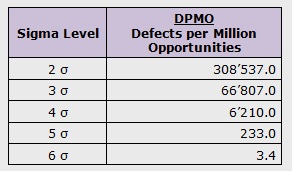
Companies typically implement Six Sigma in operations that involve computers and robots, rather than humans, since humans are often prone to making more than 3.4 errors per million attempts.
However, given our intolerance for police mistakes, it seems that we expect all our cops to be Robocop.
And yet, even Robocop would make 3.4 errors per million tries. With 3 billion interactions, that means our Robocops would make 10,200 errors per year.
Once you begin to consider the number of firearms the US has, the unusually high murder rate, the 20,000 psychopaths in our police, and the statistical possibility that armed humans will make grave mistakes in high-pressure situations, then what's remarkable isn't that cops kill 1,000 people per year, but that they only kill 1,000 people per year.
More importantly, 96.7% of the 1,000 people that the police killed were armed and dangerous. As Heather MacDonald wrote:
But in light of the number of arrests that officers make each year--around 11 million–and the number of deadly weapons attacks on officers—27 a day in just two-thirds of the nation’s police departments--it is not clear that 1000 civilian deaths, the vast majority occurring in the face of a potentially deadly attack, show a law enforcement profession that is out of control.
None of this is meant to suggest that the police don't unjustly harass and target Blacks. Without a doubt, it's hard to be Black in America, especially if you're Black and poor. Blacks deal with daily frustrations and injustices that are exhausting and humiliating.
I wish I could wave a wand and make all Blacks be cops for one year and cops be Black for one year. At the end of the year, both Blacks and cops would say, "Ohhhhhhh! Now I get it!"
The often unmentioned data that changes everything
A Washington Post opinion piece wrote, "A study of police-shooting databases published by the National Academy of Sciences found that African American men were about 2.5 times more likely than white men to be killed by police. . . . The Post’s own comprehensive examination of police shootings showed that Black Americans account for just 13 percent of the population but one-fourth of shooting victims. Among unarmed victims, the disparity was even greater: More than one-third of those fatally shot were Black."
Does reading such statistics make your blood boil? We've all read similar data that shows how Blacks are disproportionately imprisoned and killed by police.
Now, let's see how your blood boils when you read these statistics:
- Men get 71% of the traffic citations
- 93% of prison inmates are men.
- 96% of those that the police kill are men.
- 99.6% of those state prisoners convicted of rape are men.
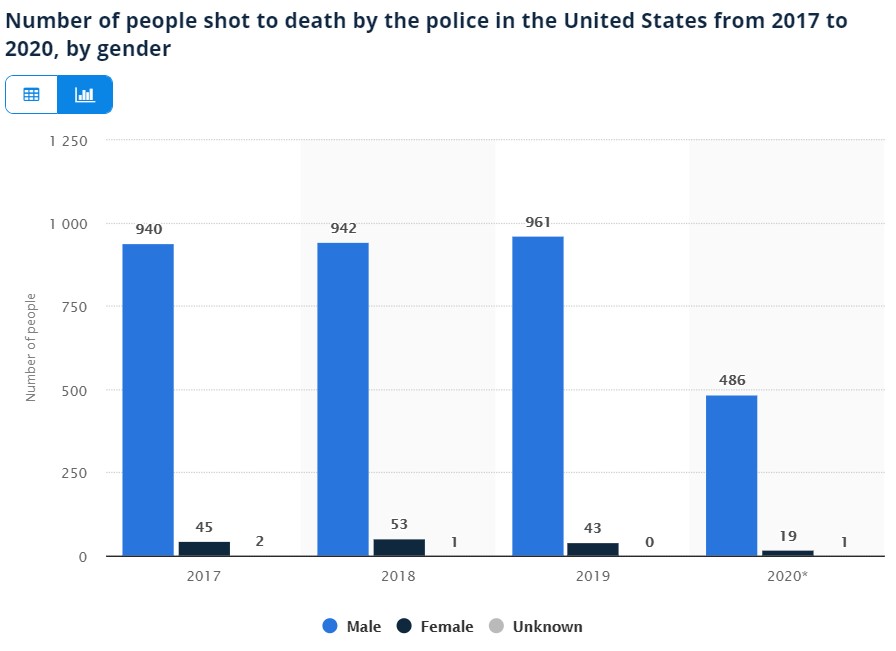
You are not outraged, right? Why not?
Because, intuitively, you know the other side of the equation. Compared to women, testosterone-driven men are far more likely to drive recklessly, murder, rape, and commit violent crimes.
You don't know the exact numbers, but you don't jump to the conclusion that there's systemic sexism in the police and justice system because the numbers are skewed against men.
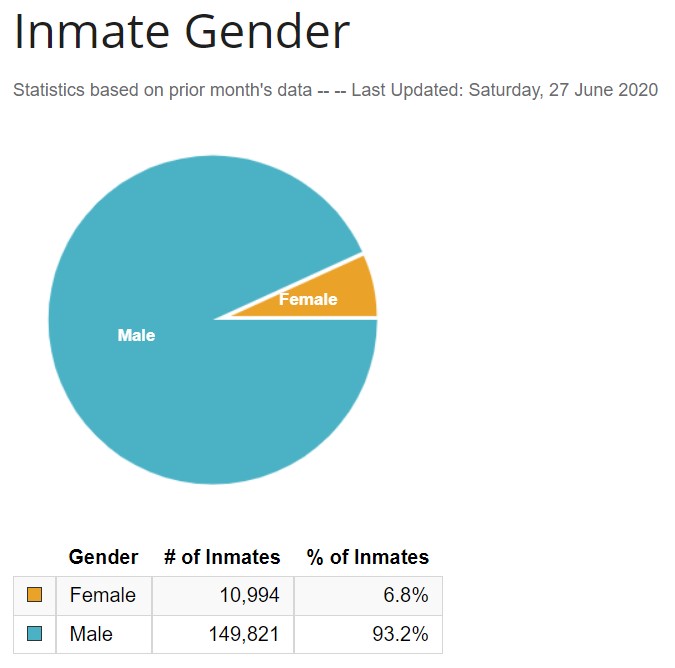
The same logic ought to apply when we evaluate police shootings. We must consider the Black crime rate before we jump to the conclusion that lynching squads are targeting Blacks.
Blacks, who are less than 13% of the US population:
- Commit about half of the homicides, violent crimes, and burglaries.
- Are seven times more likely than whites to commit homicide.
- According to the FBI Uniform Crime Reports, black youths, who make up 16% of the youth population, accounted for 52% of juvenile violent crime arrests, including 58.5% of youth arrests for homicide and 67% for robbery.
When faced with such facts, activists may answer: "Those stats are misleading because racist police and bigoted judges conspire to accuse and convict Blacks falsely!"
That certainly happens. But does it explain everything?
As we saw with men vs. women, whenever you categorize people, we're never perfectly proportional.
- 91% of nurses are female. Is that evidence of discrimination or sexism?
- 75% of NBA players are Black. Is that evidence of racism against whites?
- Asians are 5.6% of the USA population, but only 1.5% of prisoners are Asian. Is that evidence of sinister Asian Supremacy?
If our goal is that our prisons match US demographics perfectly, we will always fail miserably. To succeed, we'll need to round up more senior citizens, women, Jews, Asians, doctors, lawyers, nuns, professors, and so on until we get a prison system that matches America's demographics. The same applies to police shootings.
Some groups will consistently outperform or underperform other groups. To expect perfect equality of outcome and performance is unrealistic and naive. Even communists couldn't achieve that goal.
Racism explains a lot. But it doesn't explain everything.
Now that we've considered many facts, let's return to the question that sparked this lengthy article. . .
How many unarmed deaths should the police be allowed to commit before our society says, "That's an unreasonably high number"?
A similar question: how many unarmed victims is a "good" number that shows that cops are exceeding reasonable expectations? And what's an "acceptable" number?
Whether we're aware of it or not, our society calculates what's a reasonable number of tragedies we're willing to tolerate in every profession. If that profession dramatically exceeds that number, then we need reforms or perhaps a revolution.
That's what happened in the airline industry. When I was a kid, society deemed that thousands of airline deaths were unacceptable and that we could do better. Over the decades, we got deaths down to a couple of hundred a year. We will probably never reach zero, but we can celebrate our progress.
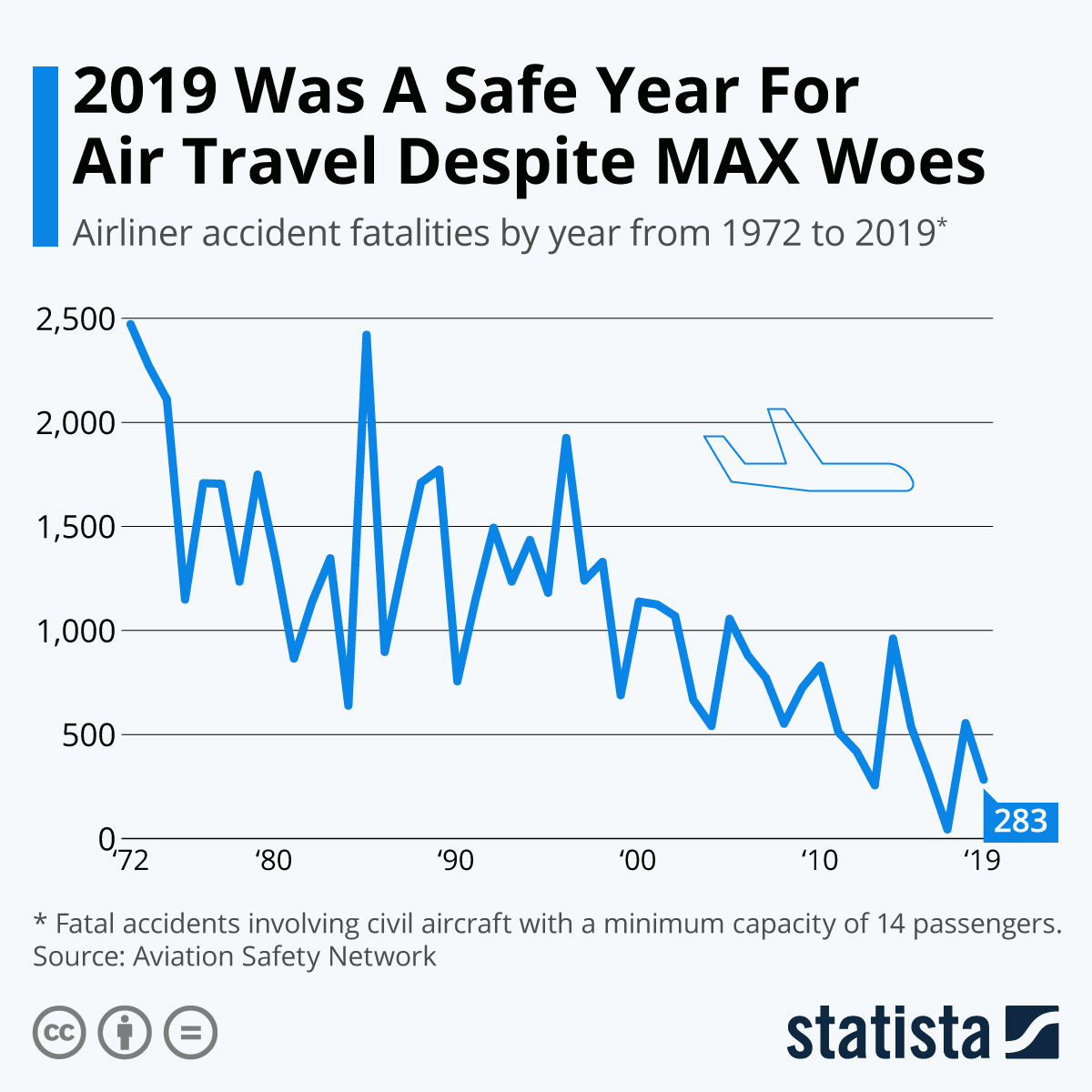
Have you come up with your three numbers (i.e., remarkably low, acceptable, and protest-worthy)? Write them down.
CONSIDER: Every day, about 40 people shoot at police officers. That's 14,600 armed encounters per year. Knowing that, is 1,000 police-caused fatalities a shockingly high number?
Of the 1,000 police killings, only 3.3% were of unarmed individuals.
In other words, nearly twice as many US hunters accidentally shoot their hunting buddies as the US police accidentally shoot unarmed suspects. Remember that wildlife hunters are not confronting hostile and belligerent foes.
How many Black people do the police kill?
Among those 1,000 police killings, let's see how the WSJ summarizes The Washington Post data:
In 2019, police officers fatally shot 1,004 people, most of whom were armed or otherwise dangerous. African-Americans were about a quarter of those killed by cops last year (235), a ratio that has remained stable since 2015.
That share of black victims is less than what the black crime rate would predict, since police shootings are a function of how often officers encounter armed and violent suspects. In 2018, the latest year for which such data have been published, African-Americans made up 53% of known homicide offenders in the U.S. and commit about 60% of robberies, though they are 13% of the population.
In other words, you might expect that the group that commits half of the homicides would represent half of the police killings, but they only represent a quarter.
How many unarmed Black people do the police kill?
First, let's define "unarmed." The Washington Post, which tracks nationwide police killings better than the federal government, defines “unarmed” loosely. The Washington Post considers the following suspects "unarmed":
- A suspect in Newark, N.J., was carrying a loaded handgun in his car during a police chase.
- Suspects who have grabbed an officer’s gun.
- A suspect who fled from a car stop with a loaded semi-automatic pistol in their vehicle.
Originally, the Washington Post reported that in 2019, the US police killed nine unarmed Blacks. Realizing that some would find that number relatively underwhelming, the Post scrambled to boost the numbers retroactively:
After the tally of nine unarmed black victims was reported in certain news outlets last week, the [Washington] Post reclassified over a dozen of its armed victims of police shootings as unarmed. This reclassification occurred six months after the Post had already closed its 2019 data base. The reclassification was not done on the basis of any new information; it was undoubtedly done to get the black victim numbers up. The Post is now showing 15 unarmed black victims in 2019.
To put those 15 tragic unarmed Black fatalities in 2019 in perspective, they represent:
- 3% of the 500 accidental firearm fatalities per year.
- 0.2% of all Black homicide victims.
- A 60% reduction of the unarmed Black victims in 2015 (when the police killed 38 unarmed Blacks)
Here's another noteworthy statistic: "A 2015 Justice Department analysis of the Philadelphia Police Department found that white police officers were less likely than Black or Hispanic officers to shoot unarmed Black suspects." Admittedly, this is one (albeit big) police department in the USA. We need more data. But let's not ignore the little data we have.
The Black Harvard economist, Roland Fryer, carefully researched 1,000 police killings and admits that he was surprised to discover there was zero evidence of racial bias in police shootings.
Neil deGrasse Tyson told Coleman Hughes that a recent study showed that the chance of "an unarmed person killed by the police (or dying in police custody) is about the same regardless of your ethnic group."
It may not feel like it, but we're making progress
When you map police killings, you see that the trendline is going in the right direction. Analyze these three graphs:
1. Blacks (armed and unarmed) killed by police (over 97% were armed):

Unarmed people killed by US police (all races):

Unarmed Black victims killed by police:

Observant people might have noticed that these numbers don't perfectly correspond to the numbers I cited above. What matters is that the numbers are not that different and the trendline is in the right direction. Despite all the doom and gloom, we are making progress over the long term.
Let's review the key points
- The USA is by far the most heavily armed nation.
- We're highly murderous to a high-income country.
- There are 800,000 cops, of which 20,000 are psychopaths.
- Even if we reduce the psychopaths by 90%, we still have 2,000 psychopathic cops.
- There are between 375 million to 3 billion police interactions every year.
- The police face 14,600 armed encounters per year.
- Of the 1,000 people that the police kill, 96.7% are armed and dangerous.
- Only 3.3% of police killings are unarmed, and most of the victims are white.
- 45 million Blacks cause about 50% of the homicides and robberies.
- About 25% of the victims of police shootings are Blacks, which is disproportionately lower than their proportion of the homicide rate.
- Unarmed Blacks killed by the police represent 0.2% of all Black homicide victims.
- In 2019, 800,000 police officers accidentally killed 15 unarmed Black people, while 1 million physicians accidentally killed about 65,000 unarmed Black people.
- Everyone makes mistakes, and those mistakes can be deadly when you're playing with firearms in high-pressure situations.
- Everyone is now walking with a video camera and a social media account, which amplifies every tragedy.
- A one-in-a-million tragedy could happen every day.
Given these numbers, one can imagine that the police could shoot an unarmed person every day.
However, in 2019, it happened "only" 44 times.
With all the abolish-the-police rhetoric nowadays, it seems absurd to applaud the police for their restraint, but, given the facts above, it is unfair and inaccurate to depict cops as a bunch of bloodthirsty murderers.
We need benchmarks
Based on the facts above, here are reasonable benchmarks:
- Too many deaths: Over 1,500 police killings overall and/or 100 unarmed deaths.
- An expected number of deaths: 750-1,500 police killings overall and/or 20-100 unarmed deaths.
- A remarkably low number of deaths: Fewer than 750 police killings overall and/or fewer than 20 unarmed deaths.
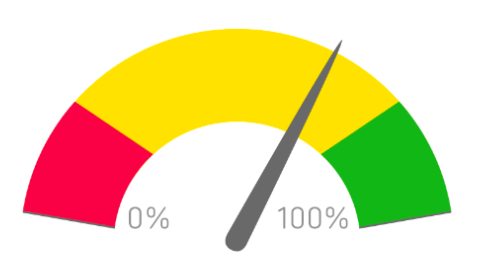
We must also have a benchmark for the percentage of those police killings who are Black. For example, if 10% of airline passengers are Black, then we should expect that 5-15% of airline fatalities would be Black. Any number that deviated much more than that should spark an investigation.
With police killings, we could use the homicide rate as a proxy for violent crime. Therefore, if Blacks cause 50% of the homicides, then it should not surprise us if 40-60% of the police killings are Blacks. Currently, it's about 25%, so we're below the expected percentage, which is good news for Blacks, but bad news for whites.
I'm not saying that my proposed benchmarks are right. I'm simply encouraging everyone, especially the leaders of the Black Lives Movement, to think reasonably and logically about this issue and come up with realistic benchmarks. We effectively do with every profession. We "accept" deaths in every profession. The police should be no exception.
Benchmarks would change if our rates of firearm ownership and homicide fell (or rose) dramatically. For instance, if Blacks commit only 10% of the murders, then we would expect that they would be 5-15% of those killed by the police. Or if our gun ownership and murder rates collapse to match Germany's rates, then we could expect our per capita police killings to be +/- 20% of Germany's rate.
We're setting ourselves up for failure
I didn't want to write this article. I know it will ignite a firestorm of controversy and anger. However, if we ignore statistics and logic, we're doomed to always fail because, given our level of gun ownership and murders, our expectations of police shootings are unreasonable.
Get this through your head: Unless 80% of our firearms vanish and our homicide rate (especially our Black homicide rate) drops by 80%, then there is no hope of getting the 15 police shootings of unarmed Black men down to zero. In 2015, the number was nearly three times that amount, and we could easily revisit those levels in the 2020s.
If we want our per capita police killings to match other high-income countries, then we must copy key aspects of other high-income countries: dramatically reduce our firearms and lower our homicide rate so that it equals their levels.
If we're unwilling or incapable of doing that, then we must recalibrate our expectations. We must learn to live with the police killing 20-100 unarmed people and about 1,000 armed people every year. Every year, we live with hundreds of passengers dying in plane accidents, thousands dying in car accidents, and 250,000 dying at the hands of an incompetent physician.
Focusing on other techniques (de-escalation, defunding, no chokeholds, no knee on the neck, etc.) is a Band-Aid. They will hardly move the needle, especially since 96.7% of police killings are of armed suspects.
With a herculean effort, perhaps we can cut police killings in half, but we'll still have traumatic numbers unless we adjust our expectations. Cutting the statistics in half means 500 police killings per year. That's still 22 unarmed killings per year. That's still one unarmed Black person killed every other month. That means that just as one protest dies down, another protest will pop up. We'll be outraged all year. Forever. Either we change our gun ownership and homicide levels, or we change our expectations.
Given our passion for the Second Amendment, it's unlikely that our firearms will decrease. Calls to defund or abolish the police have only spurred more gun sales: we added 3 million guns to our country in the Spring of 2020.
Given that nowadays everyone walks around with a video camera, that means that about once a month, you're going to get footage of a policeman killing an unarmed Black. If you don't see it, the media will proclaim the tragic story.
During the Jim Crow days, the media would amplify any story where a Black man hurt a white person. The media ignored stories of Blacks who coexisted peacefully with whites. The Jim Crow media also ignored stories of whites lynching, hurting, or discriminating against blacks. It was just one story all the time: Blacks are a menace to whites. This demonized Blacks.
We're making the same mistake. We're amplifying police shootings of unarmed Black people while ignoring other relevant facts. Have you ever heard of:
- Brandon Stanley
- Daniel Shaver
- James Scott
- Derek Cruice
- Dylan Noble
I doubt it. They are some of the many unarmed whites that the police killed. Have you heard of:
- Trayvon Martin
- George Floyd
- Tamir Rice
- Michael Brown
- Breonna Taylor
Of course, you have. That proves that the Blacks Lives Matter movement has succeeded in shining the spotlight on Black lives. Two-thirds of Americans support Black Lives Matter:
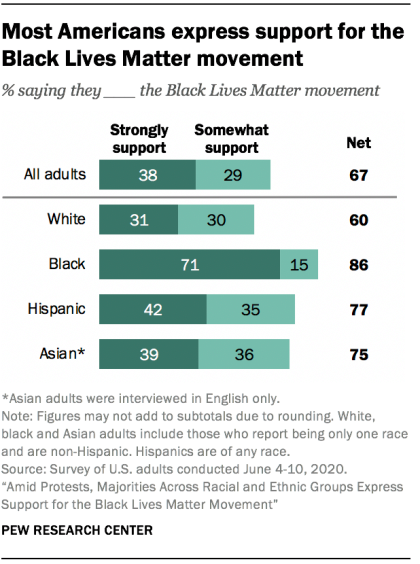
But don't you want to be on the right side of history?
One of my friends has repeatedly told me, "Francis, you're on the wrong side of history."
If carefully analyzing statistics and using logic puts me on the wrong side of history, then crucify me.
If being on the right side of history involves brushing important facts under the carpet in the name of "social justice," then I'm uninterested in being on the "right side of history."
If we manage to reduce police killings by 80% without corresponding firearm and homicide reductions, then I will be on the wrong side of history.
I believe that the US will ultimately come to terms with the reality I've presented. Society will have to adjust its expectations once we realize that an infallible police is an impossibility, especially in a country that is overflowing with weapons and murders.
But you're tone deaf!
A few people hurl the 21st-century insult of "being tone-deaf" against me. This suggests that I'm being callous, insensitive, and unempathetic to the plight of Blacks.
On the contrary, each time a white police officer kills an unarmed Black person, our nation (and even the world) suffers intense trauma. Like any sensitive person, I want the trauma to stop. Moreover, I never wanted the police to shoot my Black wife.
However, what if, after running the numbers, it becomes apparent that it's improbable for the trauma to stop by simply defunding, abolishing, or retraining the police? Should you ignore those numbers and keep protesting?
What if every time a plane crashes, the world ignites in a firestorm of protests, burns airports, and attacks the TSA employees? In that case, I would say, "Folks, expecting zero airplane fatalities when we have 5 billion airline passengers annually is unrealistic. Given all the moving parts and all the humans involved, a couple of hundred airline-related fatalities is remarkably low."
Those who have lost loved ones in an airline crash would accuse me of being "tone-deaf." I would accuse them of being blind to the statistical reality.
We're suffering from groupthink
Groups are usually right. I love discussing the wisdom of crowds. On the other hand, sometimes the crowd gets it wrong. Sometimes we succumb to groupthink.
In the 1950s, groupthink said that interracial marriages were wrong. Only 4% approved them. I'm sure independent thinkers were bullied by the majority for their contrarian thinking.
Of course, contrarians are often wrong. I don't believe in being a contrarian just for the sake of getting a rise out of people. On the contrary, being a contrarian is exhausting.
I'm not suggesting I'm right. I could be wrong. I am often wrong.
So if you think I am wrong, I welcome your intelligent criticism. Just be aware that tragic stories or sincere feelings do not sway me.
I demand evidence. Logic. Statistics. Careful analysis. Call me a cold, heartless asshole. But I prefer being realistic and fair, even if the answer is counterintuitive and politically incorrect.
If you base your beliefs on emotion, stories, and anecdotes, then you will find this article incomprehensible and offensive.
I wrote this article a couple of months after George Floyd died. I wrote it because I'll need to share this article throughout the 2020s. After all, it's a statistical certainty that there will be more George Floyds, Trayvon Martins, and Ahmaud Arberys, just like I know there will be more airline accidents, malpractice deaths, and daycare deaths. Sadly, I'll have to keep sharing this article until either we adjust our expectations or we adjust our gun ownership and murder rates.
People are horrible with math
We're emotional creatures. We are more easily swayed by rousing stories than dry numbers.
We exhibit our awful understanding of statistics when we get nervous about boarding an airplane, but remain calm when we enter a car.
After September 11, 2001, we became hysterically concerned about terrorism. Thanks to groupthink, we spent trillions of dollars and killed hundreds of thousands of people half a world away because 3,000 Americans tragically died. Even 15 years after 9/11, terrorism was America's second greatest fear, which was completely delusional. From 2008 through 2015, the annual chance of dying in a terrorist attack on U.S. soil was 1 in 30 million.
Now, groupthink is twisting reality again. In 2019, we amplified the 15 unarmed Black people that the police killed while ignoring the 29 unarmed white people who were killed. As a result, we've managed to traumatize Blacks so severely that they're more likely to resist the police because we've convinced them that they will get lynched. Resistance escalates a benign situation and increases the risk of another heartbreaking story hitting the news. Even megastars who live in mansions with tight security are caught up in the mass hysteria:
We’re literally hunted EVERYDAY/EVERYTIME we step foot outside the comfort of our homes! Can’t even go for a damn jog man! Like WTF man are you kidding me?!?!?!?!?!? No man fr ARE YOU KIDDING ME!!!!! I’m sorry Ahmaud(Rest In Paradise) and my prayers and blessings sent to the..... pic.twitter.com/r1PNxs8Vgn
— LeBron James (@KingJames) May 6, 2020
The reality is that an unarmed Black person has a 1 in 3 million chance of being killed by the police. That means a Black is twice as likely to be killed by a wild animal in any given year.
How do we reduce Black deaths?
If someone ordered you to dramatically reduce the number of Black killings, would you focus most of your effort on police killings?
No. That's not where the low-hanging fruit lies. Every year, about 7,500 Blacks are murdered. Therefore, even if we miraculously eliminated all unarmed police shootings, 99.8% of Black homicide victims would remain.
It's depressing that Blacks die of homicide at eight times the rate of whites and Hispanics combined. Black Lives Matter focuses on police killing Blacks, but if they want any hope of lowering that number, they will need to focus on the elephant in the room: Blacks killing Blacks.

According to comments submitted to the Committee on the Judiciary of the United States House of Representatives in response to the Oversight Hearing on Policing Practices and Law Enforcement Accountability:
Blacks between the ages of ten and 43 die of homicide at thirteen times the rate of whites, according to the CDC. In New York City, Blacks make up 73% of all shooting victims, though they are 23% of the city’s population. In Chicago in 2016, there were 4,300 shooting victims, almost all Black.
So does this mean that systemic racism is a myth?
No. Roland Fryer revealed that the police are 50% more likely to rough up Blacks and Hispanics. Here are more points from the Washington Post:
- A study of nearly 100 million traffic stops by police departments nationwide found that Black drivers were far more likely to be pulled over than white drivers.
-
African Americans are far more likely to be arrested for petty crimes. A 2018 study exposed “profound racial disparity in the misdemeanor arrest rate for most — but not all — offense types.” The Black arrest rate was at least twice as high as that for Whites for disorderly conduct, drug possession, simple assault, theft, vagrancy, and vandalism.
-
A 2020 study of marijuana possession arrests by the American Civil Liberties Union concluded that even in an era of legalization and decriminalization, there were “stark racial disparities” in possession arrests, with a Black person more than 3 1/2 times more likely to be arrested for possession than a white person, even though rates of usage are similar. The disparities exist “across the country, in every state, in counties large and small, urban and rural, wealthy and poor, and with large and small Black populations.”
-
There is evidence that Blacks are historically prosecuted more harshly for the same crimes as whites.
-
There is evidence that sentencing for killing Black people is usually less harsh than it is for killing white people.
-
There is evidence of redlining and various other types of discrimination.
Here is an exhaustive list showing evidence of police bias. At the bottom of the list are contrarian case studies that demonstrate no bias. The list indicating bias is much longer than the list that shows no bias.
Therefore, there is ample evidence that indicates that the police have plenty of room for improvement. Shooting unarmed Black people should not be Exhibit A in one's effort to prove systemic racism.
I have focused on police shootings because that's what Black Lives Matter (and the protesters) focus on. The data tells us to focus elsewhere.
6 Solutions
We must not waste money and attention. Black Lives Matter is a remarkably powerful movement. Unfortunately, it's directing much of its power, attention, and money at the issue of unarmed Blacks killed by the police. Although it's symbolically important, many issues are more impactful.
If we want to dramatically improve Black lives, we ought to pursue these causes:
- Legalize all drugs (including heroin) and free everyone who is in prison on drug-related crimes. Nearly 50% of inmates are there for a drug-related crime. With legalization, we could, overnight, drain our prisons and reunite drug offenders (who are disproportionately Black) with their families.
- Encourage a two-parent household. Fatherless boys too often get into trouble (both academically and legally).
- Stop Black-on-Black crime. This is the elephant in the room. The group that kills the most Blacks is the Blacks themselves. Gun buy-back programs may help. Flooding Black communities with (Black) cops would decrease Black-on-Black crime. Follow the advice of Black community leaders on reducing crime in their neighborhoods.
- Free education up to any degree level. There's resistance to paying reparations. There is also resistance to offering free college education to all Americans. I'm skeptical, too, but why not do a 10-year pilot project with Black Americans and see how it goes? If a Black person wants to pursue a STEM degree, a JD, an MBA, or a Ph.D., then let's examine what happens when taxpayers foot the bill. If the results are good, then we can roll the program out to more disadvantaged groups.
- Require police body cams. They're helpful for several reasons.
- Reduce firearms. Obviously, this is extremely unlikely, but it's worth a shot, so to speak. It's not a panacea. Just because we drop gun ownership in half, doesn't mean that homicides will drop in half. There are many ways to kill a human. Still, if we want our homicide rate to approach the homicide rate of other high-income countries, then we must adopt some of their habits.
These solutions would improve Black lives and minimize the number of police killings. Clearly, there are many other solutions we ought to consider. We must think of solutions that will change 45 million Black lives, not just a dozen. And by improving their lives, we all benefit.
Here's what Pew Research learned when they proposed four solutions to improve Black lives:

In 2025, Gallup released the poll below. Gallup summarized:
Majorities of all Americans across racial subgroups have positive views of their local police. This includes having confidence in them, feeling satisfied with the relationship between the police and their community, believing local police treat people like them fairly, and expecting that the police would treat them with courtesy and respect if they were to have an interaction. Still, Black adults are less likely than White adults and Americans in general to be upbeat about these aspects of police relations.
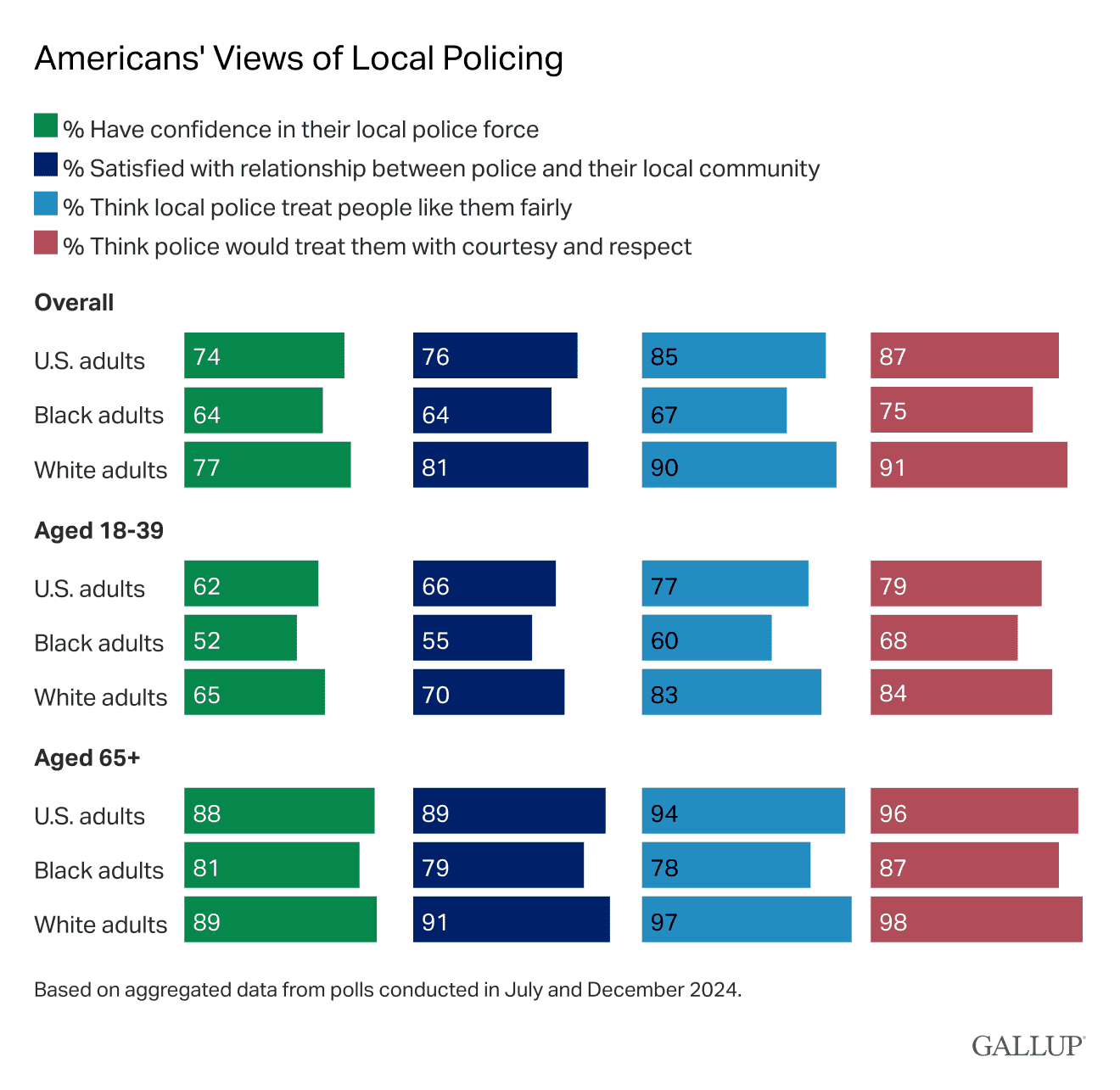
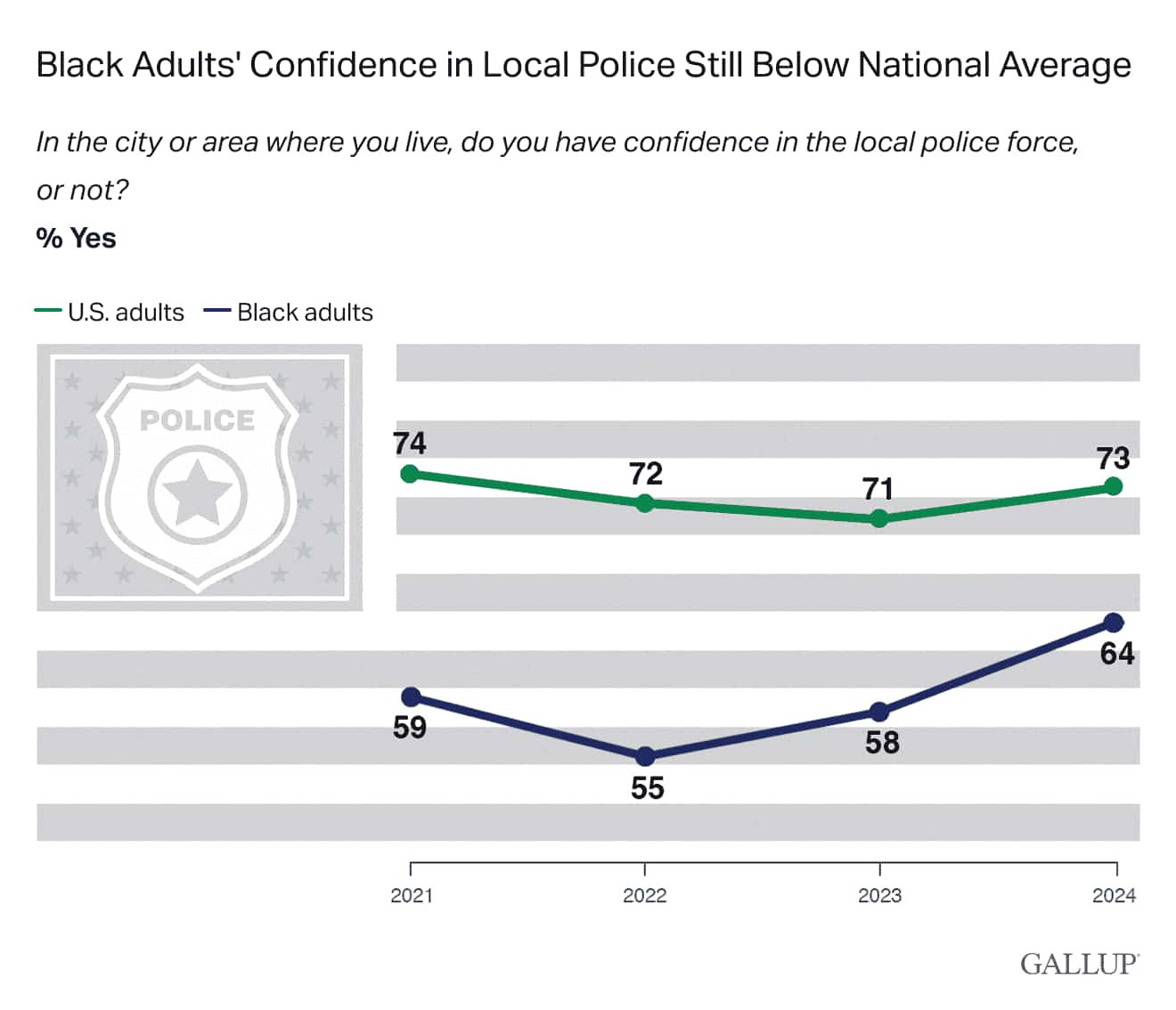
If you want to change our groupthink, share this article.
More info and comments
Coleman Hughes's reflections on race, riots, and police shootings are worth reading.
Sam Harris has an excellent podcast on this issue.
On social media, my username is always ftapon. Follow me on:
- http://facebook.com/ftapon
- http://twitter.com/ftapon
- http://youtube.com/user/ftapon
- http://pinterest.com/ftapon
- http://tumblr.com/ftapon
My Patrons sponsored this show!
Claim your monthly reward by becoming a patron at http://Patreon.com/FTapon
Rewards start at just $2/month!
If you prefer to do a one-time contribution, you can send it to my PayPal account at
If you prefer giving me Bitcoin, then please send BTC to my tip jar: 3EiSBC2bv2bYtYEXAKTkgqZohjF27DGjnV
What do you think?
In your comment below, write what you think is an acceptable number of unarmed people that the police may accidentally shoot every year - and please explain why you think it's a reasonable number. If you believe that number is zero, then please explain why you think that's possible given the current environment and how you propose we can make that happen.

